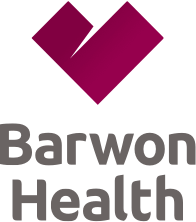Editorial - Palliative care not a discussion to be feared
Palliative Care is a term most people hope that they won’t hear.
When doctors start talking about palliative care, someone has an advanced illness that is becoming less likely to be cured or controlled, and the possibility of death is increasing.
That is why most people associate palliative care with death and dying, which is a topic that usually comes causes anxiety and even fear.
However, the concept of palliative care has evolved to focus on how we can improve life and living, and reduce anxiety and fear, even when death cannot be prevented. We don’t want to pretend that death isn’t part of palliative care, but we’ve learned that we can achieve more by meeting people earlier in their illness to ensure they live the best life they can for as long as possible.
Our model of care has moved far beyond the dated concept of just giving people a nice place to die.
We have a much broader vision of helping people with a life-limiting illness remain where they want to be, doing as many things as they can, and reducing the impact of their illness on them and their families.
This can start very soon after diagnosis, and it’s not just the elderly but people of all ages who need to face the reality of death.
Regardless of their age, the majority of people are unprepared for the concepts of death and dying, and even doctors try to avoid thinking about that reality until it feels inevitable – but the honest truth is that we’re all going to die.
During the recent Palliative Care Week, and through our new palliative care podcast Room 64, Barwon Health is encouraging people to have these tough conversations now to make life easier when you eventually are forced to face your own mortality.
Often, having conversations about what matters the most in life will help people make choices that determine where they are and the treatment they receive in their final months.
Knowing the choices you want to make leading up to death ultimately gives you more control if and when you find yourself facing an anxious and difficult experience of illness.
Research has shown that people with a diagnosis of inoperable lung cancer have a better quality of life with less anxiety when they meet with a palliative care expert soon after their diagnosis, even living over two months longer than patients who didn’t engage with palliative care services.
When palliative care can reduce pain and distress, people are often more relaxed, using less energy, eating better, staying active, and able to live longer.
Early conversations around death and dying make it easier to understand that death is an unavoidable part of life that we must be prepared for.
The angst often comes from thinking about the time leading up to death and this drives people to make choices in their treatment that don’t always benefit them, sometimes increasing suffering.
When people can embrace their end-of-life reality, and understand that no one lives forever, it not only improves their own experience and enriches the rest of their interactions with family and friends, but it helps the health system function better.
At any one time, more than 200 people are registered with Barwon Health’s palliative care service in Geelong.
Most are in their own homes, with regular nurse visits, telephone support and emergency nurse availability 24 hours a day, seven days a week.
Some people are in residential care facilities, while others are at University Hospital Geelong, or the 16 bed inpatient palliative care ward at the McKellar Centre. Geelong residents are also fortunate to have access to the day respite services at Anam Cara House, a charity which is independent from Barwon Health, providing activities and socialisation, while ensuring extra support for carers.
We know there is always room for improvement in palliative care, and recent additional Victorian Government funding will increase the availability of our specialist palliative care nurses, with boosted in-home care and more staff to visit people choosing to die in their own homes.
It takes courage and determination to start these difficult discussions with family, friends and health professionals, but it’s an important step in the process.
Our palliative care team is available to directly discuss our services with you or your loved ones, with contact details on the Barwon Health website.
Dr Ian Grant is a palliative care specialist at Barwon Health
Filter by tags
- University Hospital Geelong
- barwon health
- Emergency Department
- Geelong
- mental health
- Deakin University
- research
- funding
- community
- cancer
- Barwon Health North
- careers
- surgery
- Norlane
- Northern Suburbs
- safety
- McKellar Centre
- Andrew Love Cancer Centre
- kidney
- awards
- Barwon Health Foundation
- CEO
- Urgent Care Centre
- maternity
- palliative care
